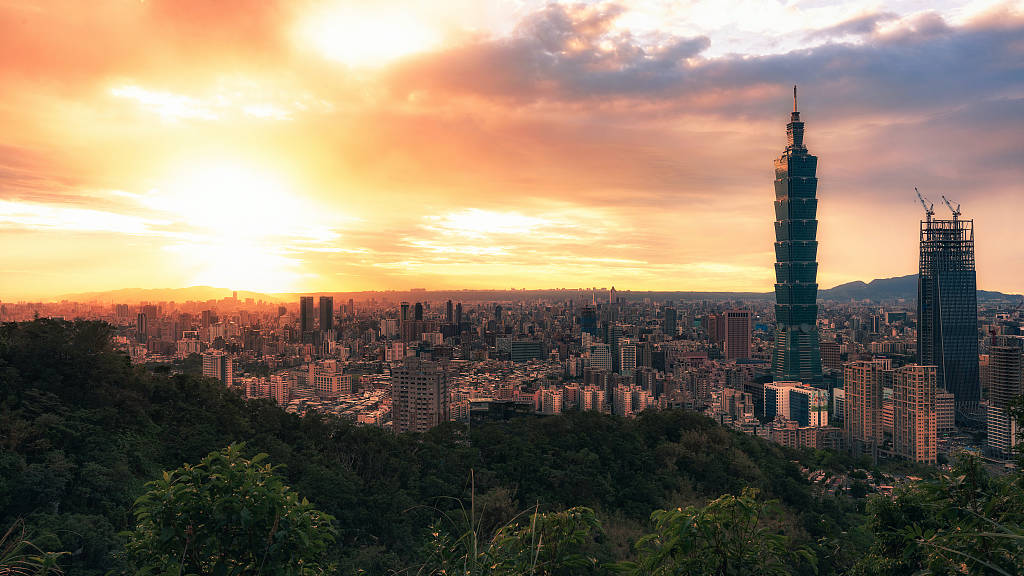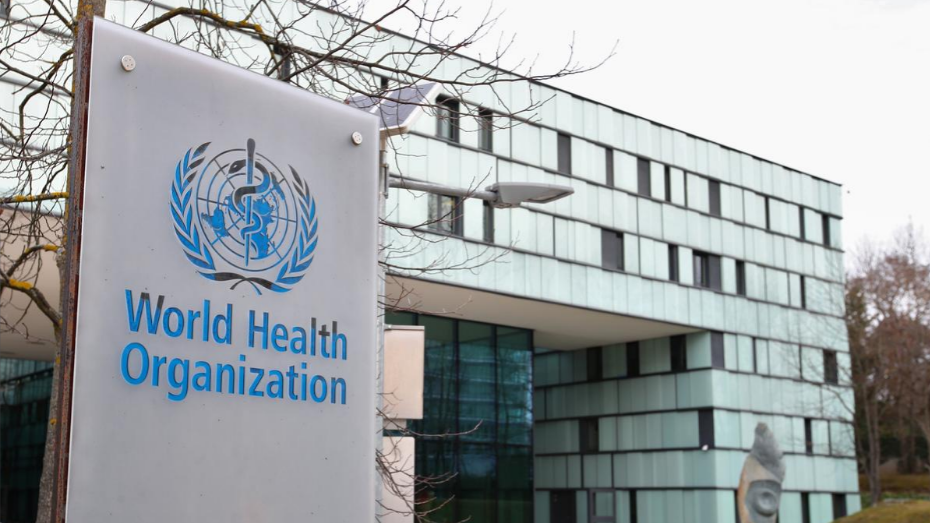
The Taipei 101 skyscraper, China's Taiwan region. /VCG
The Taipei 101 skyscraper, China's Taiwan region. /VCG
Editor's note: Zhou Wenxing is an adjunct research fellow at Shang Dao Institute for Social Research and a Joint-PhD graduate of Shanghai Jiao Tong University and Harvard University. He writes on topics pertaining to the Taiwan issue and China-U.S. relations. The article reflects the author's opinions, and not necessarily the views of CGTN.
A high-level delegation led by Alex Azar, U.S. Secretary of Health and Human Services, arrived in Taiwan on August 9 and will meet with the region's leader Tsai Ing-wen and other senior officials during the three-day visit. A move showcasing closer U.S. connections with Taiwan, Azar's travel is another step to provoke China while the Sino-U.S. relations deteriorate. As the pandemic rages on, the move reveals the Trump administration's multiple calculations.
Firstly, it's a substantial step toward the implementation of the Taiwan Travel Act enacted in March 2018. Azar's travel to Taiwan set the new record as the highest-level sitting official to visit the region since 1979 when the U.S. switched its diplomatic recognition to the Chinese mainland. This further undermines the "one China" policy to which the previous U.S. administrations adhered.
Secondly, it suggests the U.S. is helping "independence" in the name of containing the pandemic. U.S. politicians, including the Secretary of State Michael Pompeo, praised Taiwan as "a model of transparency and cooperation in global health during the COVID-19 pandemic" while blaming the Chinese mainland and seeking to hold it accountable for the alleged faults in the pandemic outbreak.
Under the guidance of the Taiwan Allies International Protection and Enhancement Initiative (TAIPEI) Act of 2019, the U.S. offered much support to Taiwan, which encourages the Taiwan authorities to reject the Chinese mainland on the one hand and improves its desire to expand the "international space" on the other.
The third reason behind U.S. decision to dispatch a high-level cabinet secretary to Taiwan is to persuade the island to create an alternative to the World Health Organization (WHO). According to U.S. media reports, the White House is now considering establishing a "WHO 2.0" based on the Joint United National Program on HIV/AIDS (UNAIDS), which was created in the mid-1990s because of growing discontent with WHO's handling with AIDS/HIV.

WHO headquarters in Geneva, Switzerland. /Reuters
WHO headquarters in Geneva, Switzerland. /Reuters
The Trump administration's efforts, pushed hard by China hawks like Pompeo, to build a value- and ideology-based united front against China also contribute to this visit. A long-time "offshore rebuke" for the U.S. to discomfit the Chinese mainland, Taiwan turns out to be one of the key allies that the U.S. hopes to incorporate into such front.
Azar's travel to Taiwan pushes U.S.' pro-Taiwan behaviors since 2017 to a new high. The past three years have witnessed seven U.S. arms sales to Taiwan and the enactment of six Taiwan-related laws. Many senior officials from both sides had meetings prior to Azar's, including Taiwan's deputy leader-elect Lai Ching-te's visit in private capacity to Washington, D.C. in February 2020.
Still, Azar's visit merely indicates that the U.S. is only paying lip service to Taiwan. The White House has been quite constrained on the Taiwan issue over the past years, which is largely because that President Trump takes no interest in the issue per se and wants to "make a deal" with China. But the president now faces a disadvantageous situation where the Democratic nominee Joe Biden takes a 15-point lead in the 2020 U.S. presidential election. Making China the scapegoat to divert attention from the administration’s mishandling of the pandemic has been one of the crucial strategies to save Trump. In this case, there seems nothing better than playing the Taiwan card.
Azar’s visit is an attempt to escalate U.S.-China strategic competition by hawkish figures in Trump administration, making the Taiwan Straits a new battlefield as U.S.-China tensions soar. The U.S. and Taiwan ostensibly benefit from this move. But interfering with China’s domestic politics undoubtedly ramps up U.S. confrontation with China and leaves little space to improve the bilateral ties before the U.S. presidential election. It will only provoke all the Chinese people and make their will to have a national reunification with Taiwan stronger.
Besides, growing U.S. support would incite the Taiwan authorities to adopt a reckless brinkmanship, thus bringing instability to the Taiwan Straits that is already stuck at a political impasse. Taiwan should clearly bear in mind that the island will never be a strategic asset to the U.S. and Taiwan’s future lies in its unification with the Chinese mainland. As the U.S. risks reigniting the flash point that may draw the Chinese mainland and the U.S. into military confrontation, Taiwan needs to stay vigilant not to be ditched by the U.S. as a chess piece.
(If you want to contribute and have specific expertise, please contact us at opinions@cgtn.com)